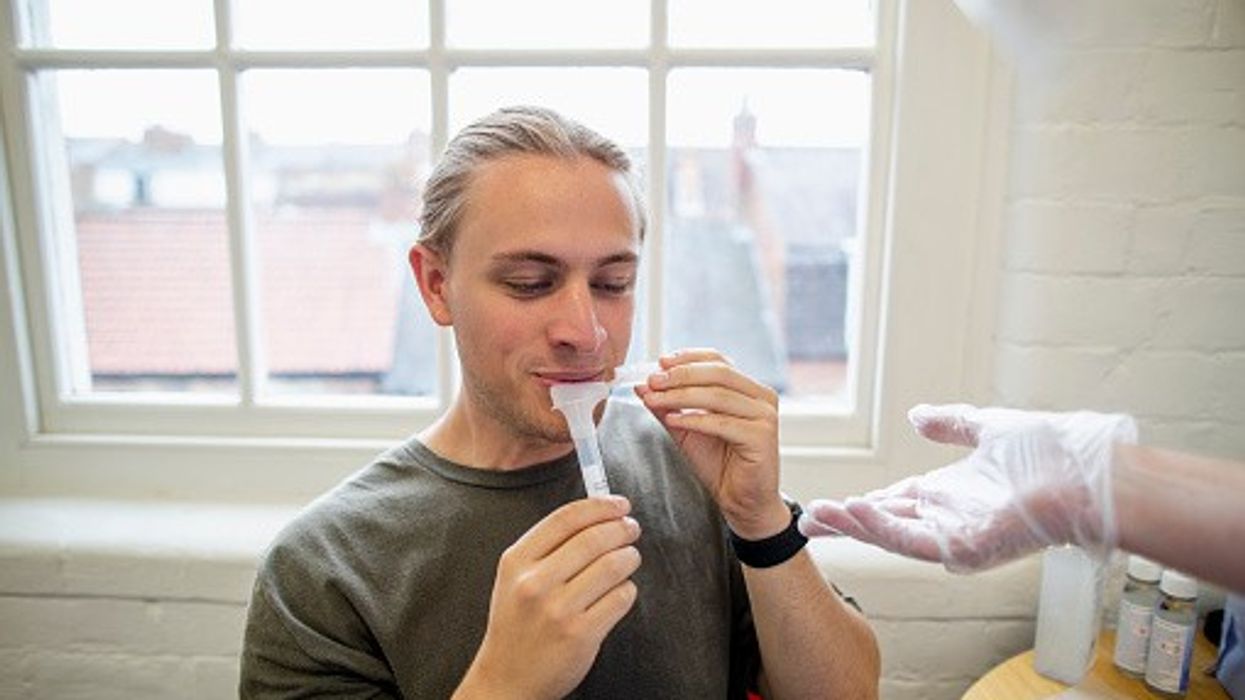A simple at-home spit test could help detect prostate cancer earlier, saving the NHS around £500 million a year, according to new research published in the New England Journal of Medicine.
Funded by the National Institute for Health and Care Research (NIHR), the study found that the DNA-based saliva test was more accurate than the current prostate-specific antigen (PSA) blood test in identifying men at risk of developing prostate cancer.
The test uses a polygenic risk score (PRS) – calculated from 130 genetic variations linked to prostate cancer – to identify men most likely to develop the disease.
Researchers assessed DNA from 6,142 men of European ancestry aged 55 to 69, a group with a higher risk of prostate cancer.
Of the 468 men in the highest 10% of genetic risk, 40% were later diagnosed with prostate cancer following MRI scans and biopsies.
This compares with the PSA test, where just 1 in 4 men with a positive result is found to have prostate cancer.
The PRS saliva test also detected a higher proportion of the aggressive cancers than the PSA test and was even more accurate than MRI scans in some high-risk cases. It also picked up cancers that the PSA test would have missed.
Researchers estimated that the spit test could help detect up to 12,350 cases of prostate cancer earlier each year, potentially saving the NHS around £500 million annually.
Currently, prostate cancer risk is assessed through the PSA blood test, which measures levels of the prostate-specific antigen protein.
PSA levels can be elevated in men with prostate cancer and are used to identify those at higher risk due to age, ethnicity, or the presence of symptoms.
However, the PSA test falsely indicates prostate cancer in men 3 out of 4 times and often identifies slow-growing cancers that are unlikely to become life-threatening. This can lead to unnecessary MRIs, invasive biopsies, and treatments.
The researchers suggested that the PRS saliva test could be an additional screening tool for men at higher risk of prostate cancer or those presenting with symptoms.
“With this test, it could be possible to turn the tide on prostate cancer,” said Professor Ros Eeles, Professor of Oncogenetics at The Institute of Cancer Research and Consultant in Clinical Oncology and Cancer Genetics at The Royal Marsden NHS Foundation Trust.
“We have shown that a relatively simple, inexpensive spit test to identify men of European heritage at higher risk due to their genetic makeup is an effective tool to catch prostate cancer early.”
The test is now being evaluated in the £42 million TRANSFORM trial, jointly funded by NIHR and Prostate Cancer UK.
This large-scale trial, launched in spring 2024, is the UK’s biggest prostate cancer screening study in decades and will directly compare the saliva test to PSA and MRI screening methods.
The study will assess whether those with a low genetic risk may benefit from an alternative screening tool.
Each year, more than 52,000 men are diagnosed with prostate cancer in the UK – roughly 144 a day – and around 12,000 die from the disease.
Despite its prevalence, there is currently no national screening programme, and the disease often shows no symptoms until it has advanced.













